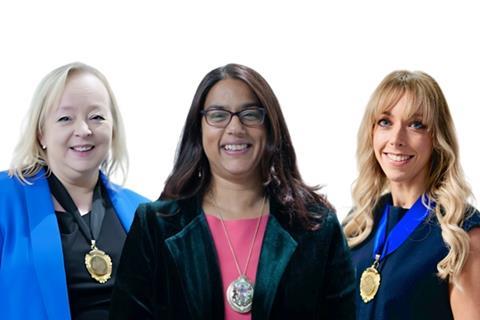Everything is SEO right now. According to the gods of digital marketing, I should be writing something on what A$AP Rocky feels about the Real Madrid v Man City game, and what this means for the Wireless Festival this year. With a link to solicitors, somehow.
But I won’t do that, because right now I want to write about the painstaking and often pretty dull work of law societies. I doubt it’ll make the Google top 10 trends.
Last week I had the genuine privilege of being invited to the monthly meeting of Cardiff and District Law Society, tucked away in a corner of the city's Crown court building. It was freezing to the point that members were putting on coats halfway through and there was no tea or coffee allowed for, well, reasons. We had to be out by 7pm and turn out the lights, or else the security guards might get cross.
Proceedings were – beating around the bush a little – not altogether thrilling. There was an update on various conferences, networking events and seminars. Numbers are doing well here, a little low there. We can’t have this clashing with that. Fees might have to go up a bit next year, and inexplicably someone paid last year’s fees but didn’t say who they were, and no one was quite sure what to do with the money. There was an update on the SQE, on diversity initiatives and this year’s Wales do at the Law Society building in London. Clive has stepped forward to host, and everyone is very grateful for it.
It wasn’t headline-grabbing or newsworthy. Mostly it was cold, so very cold. Many practitioners in Cardiff might not have known it was happening.
The point is not to undermine the work of the committee – the exact opposite in fact. This group of volunteers is what keeps the local profession ticking over, and the scenario is no doubt replicated in dusty meeting rooms across the country. Local law societies are given scant attention (not least by the legal media I should add) and yet they are in many ways its lifeblood.
Helping new entrants find a group of similar people, advocating for the region and helping people develop skills and contacts – these are the unheralded few that ensure solicitors everywhere, from Dorset to Doncaster and from Plymouth to Preston, are represented and looked after. Seminars on aspects of law, charity fundraisers, networking events, black tie dos: each designed to provide knowledge, light relief or just a bit of company. In a profession increasingly fractured and where people work remotely, the chance to come together is more treasured than ever.
They also reflect and perhaps even lead efforts to change the face of the profession. We have reported ourselves on how young people and junior lawyers are taking responsibility and stepping up to lead societies. The Cardiff group is led this year by president Trish D’Souza, who appears to have boundless energy to be on every committee and attend every event. Her vice presidents are Emma Waddingham and Julia Reynolds. Having an all-female leadership team is a far cry from the photos of the pre-WWI committee which are outside the meeting room, where the only diversity was that some men didn’t sport a moustache.

My most memorable encounter with a local law society was a few years back when we had written a couple of stories in the space of a week about Manchester firms struggling. Wanting to write something positive as a counter-balance, I asked the Manchester Law Society chief executive (the incomparable Fran Eccles-Bech) if she could put me in touch with anyone. Within three days she had nine managing partners sat round a table ready to tell me how Manchester was thriving.
The profession needs regional law societies even if we don’t always hear about them or even know them. It might not be clickable content, but we’d all be worse off without them.































3 Readers' comments